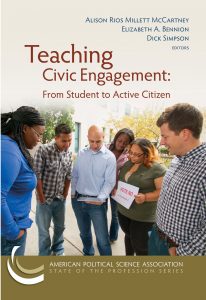The Faraway Nearby

I continue to be enthralled by what she is able to put into words. My words here certainly can't do justice to her writing. Even culling a few gems as I did earlier or as I do below cannot portend to describe the experience of being with this mind/soul window into a world. The structure of the book itself continues to unfold in ways somewhat evoked in her string of characters inscribed on the pages.
After a brief description of a visit to a labyrinth. She writes:
Imagine all the sentences in this book as a single thread around the spool that is a book. Imagine that they could be unwound; that you could walk the line they make or are walking it. Reading is also like traveling, the eyes running along the length of an idea, which can be folded up into the compressed space of a book and unfolded within your imagination and your understanding. (p.189)
from the same chapter
We live inside each other's thoughts and works. As I write, I sit in a building erected on a steep slope, so that what is in the first floor uphill is the second floor downhill. Someone thought through the site and designed the structure specifically for this corner; someone cut the lumber in a forest up or down the coast; someone framed the structure, plastered the walls, laid the oak floorboards, the pipes, and the wires; someone designed and others made the chair I sit on, all of it long before I was born. (p.190)
Long before that people established ideas about what houses and chairs should be like. I am in this moment hosted by anonymous craftspeople long gone, or rather their ideas and labor, surrounded by more ghosts in the books in the room and other remnants of trees, the language I speak, the body I inhabit with the adaptations and limitations of innumerable ancestors running through it, the city around me, the countless gestures, acts, devotions, that keep making the world. (p.190-1)
I am, we each are, the inmost of an endless series of Russian dolls; you who read are now encased within a layer I built for you, or perhaps my stories are now inside you. We live as literally as that inside each other's thoughts and work, in this world that is being made all the time, by all of us, out of beliefs and acts, information and materials. Even in the wilderness your ideas of what is beautiful, what matters, and what constitutes pleasure shape your journey there as much as do your shoes and map also made by others.(p.191)
...You build yourself out of the materials at hand and those you seek out and choose, you build your beliefs, your alliances, your affections, your home, though some of us have far more latitude than others in all those things. You digest an idea or an ethic as though it was bread, and like bread it becomes part of you. Out of all this comes your contribution to the making of the world, your sentences in the ongoing interchange. The tragedy of the imprisoned, the unemployed, the disenfranchised, and the marginalized is to be silenced in this ongoing conversation, this symphony that is another way to describe the world. (pp191-2)


 the
the 







 whose pages I turned earlier this morning. Carolan seems to argue that our notion of food security has been hijacked and linked to simply the total production of calories. He would have us embed the notion of food security in Franklin Roosevelt's 1941 Inaugural Address
whose pages I turned earlier this morning. Carolan seems to argue that our notion of food security has been hijacked and linked to simply the total production of calories. He would have us embed the notion of food security in Franklin Roosevelt's 1941 Inaugural Address

